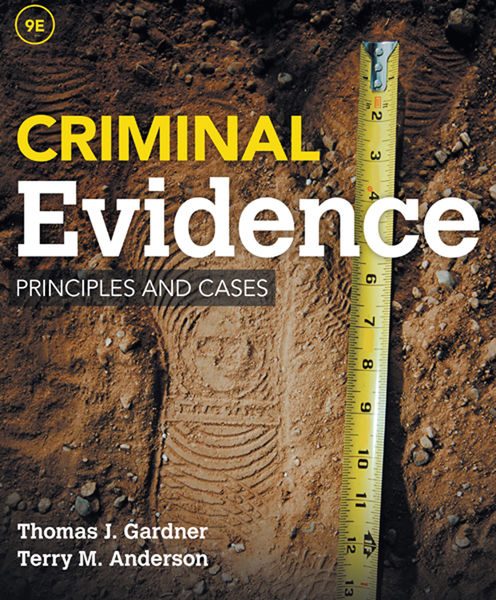Description
Test Bank for Criminal Evidence: Principles and Cases, 9th Edition, Thomas J. Gardner, Terry M. Anderson
Table of Contents
Part I: INTRODUCTION TO CRIMINAL EVIDENCE.
1. History and Development of the Law of Criminal Evidence.
2. Important Aspects of the American Criminal Justice System.
3. Using Evidence to Determine Guilt or Innocence.
4. Direct and Circumstantial Evidence and the Use of Inferences.
Part II: WITNESSES AND THEIR TESTIMONY.
5. Witnesses and the Testimony of Witnesses.
6. Judicial Notice, Privileges of Witnesses, and Shield Laws.
7. The Use of Hearsay in the Courtroom.
8. The Confrontation Clause and Exceptions to the Hearsay Rule.
Part III: WHEN EVIDENCE CANNOT BE USED BECAUSE OF POLICE MISTAKES OR MISCONDUCT.
9. The Exclusionary Rule.
10. Where the Exclusionary Rule Does Not Apply.
11. “Special Needs” and Administrative Searches.
12. Obtaining Statements and Confessions for Use as Evidence.
13. The Law Governing Identification Evidence.
14. Obtaining Physical and Other Evidence.
15. Obtaining Evidence by Use of Search Warrants, from Computers, Wiretapping, or Dogs Trained to Indicate an Alert.
Part IV: CRIME-SCENE, DOCUMENTARY, AND SCIENTIFIC EVIDENCE.
16. The Crime Scene, the Chain of Custody Requirement, and the Use of Fingerprints and Trace Evidence.
17. Videotapes, Photographs, Documents, and Writings as Evidence.
18. Scientific Evidence.
Appendix A: Sections of the U.S. Constitution.
Appendix B: Finding and Analyzing Cases.
Appendix C: Federal Rules of Evidence.
Glossary.
Case Index.
Subject Index.



Reviews
There are no reviews yet.